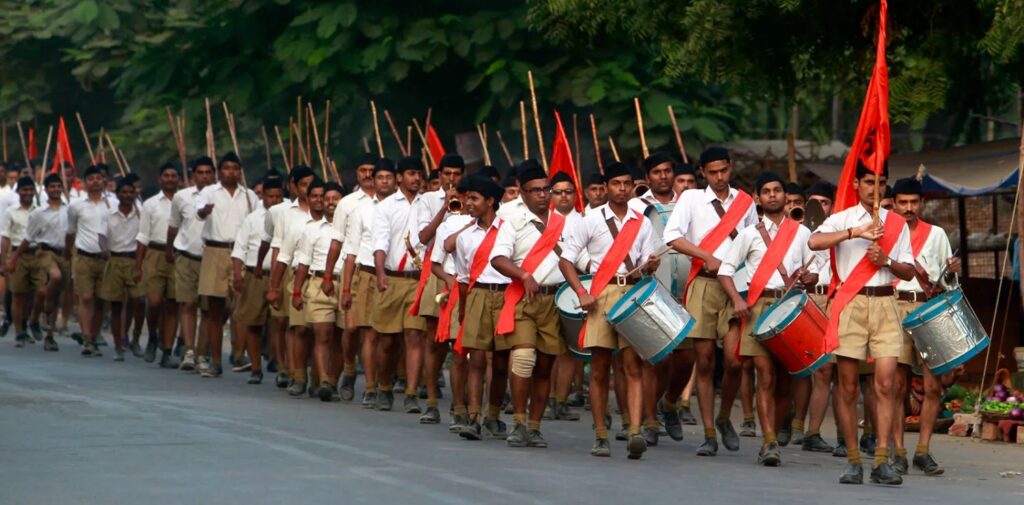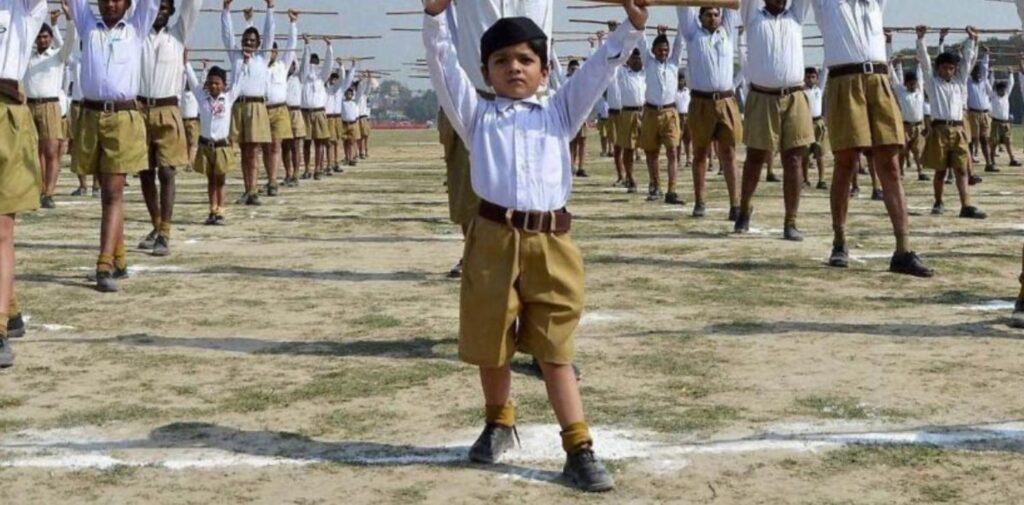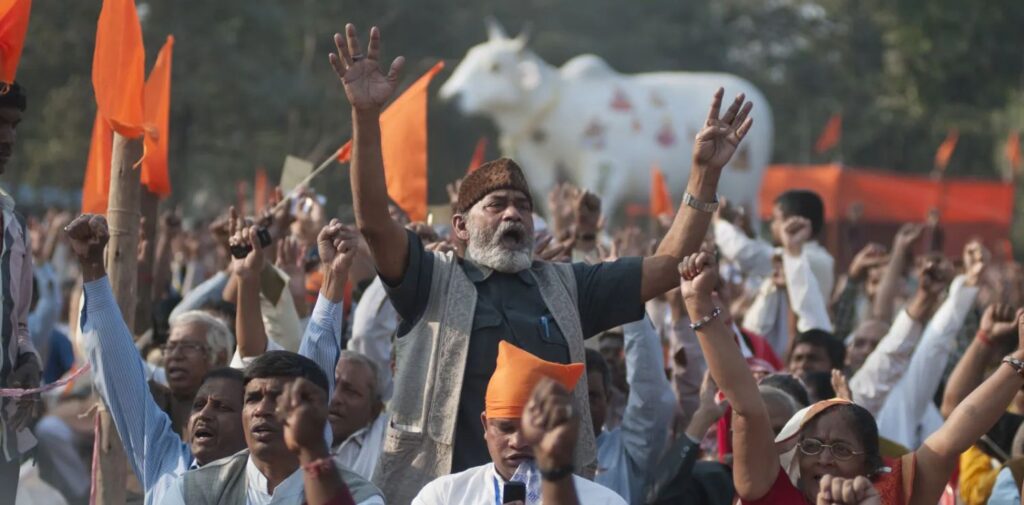The Rashtriya Swayamsevak Sangh, or RSS, is one of the most influential and widely discussed organizations in India. Founded in 1925 by Dr. K.B. Hedgewar in Nagpur, the RSS was initially conceived as a cultural and social organization aimed at promoting unity, discipline, and national consciousness among Hindus. Over time, however, it has evolved into a powerful political and ideological force that has had a significant impact on the trajectory of Indian politics. Its influence has stretched far beyond its original purpose, shaping the country’s political landscape in ways that have sparked debate, controversy, and support in equal measure.
In this article, we will explore the role of the RSS in shaping Indian politics, from its early days to its current status as a key player in the political arena, particularly through its connection to the Bharatiya Janata Party (BJP) and its influence on national policies.
The Birth and Early Ideals of RSS
The RSS was founded with the idea of instilling a sense of discipline, unity, and nationalism among Hindus. Dr. Hedgewar believed that India’s strength lay in its cultural and religious unity, and the RSS was designed to counter the social and political fragmentation caused by colonial rule. The organization focused on social service, physical training, and spreading awareness about India’s ancient cultural values. In its early years, the RSS mainly served as a volunteer-based group focused on building strong and disciplined individuals.
The organization did not directly engage in electoral politics in its early years. Instead, it concentrated on social and cultural issues, emphasizing the importance of Hindu identity, traditional values, and unity. RSS camps, or “shakhas,” became a regular feature in many towns and villages, where members gathered for physical drills, discussions, and educational activities focused on promoting nationalism.

The RSS and Its Relationship with Politics
While the RSS was originally a non-political organization, its influence gradually started to extend into the political realm, particularly after the formation of the Bharatiya Janata Party (BJP) in 1980. The BJP emerged as a political party representing Hindu nationalist ideology, and it was closely linked with the RSS. The RSS played a crucial role in the establishment and growth of the BJP, which positioned itself as an alternative to the Congress Party and as a party that could represent the interests and values of the Hindu majority.
The RSS and BJP share ideological similarities, particularly around the concept of “Hindutva,” or Hindu nationalism. Hindutva, as espoused by Vinayak Damodar Savarkar in the 1930s, is a political ideology that seeks to define India as a Hindu nation. While the RSS does not directly participate in electoral politics, its members have been instrumental in shaping the policies and strategies of the BJP. Many BJP leaders, including Prime Minister Narendra Modi, have strong ties to the RSS, having grown through its ranks.
The RSS and BJP: A Symbiotic Relationship
The RSS and BJP share a close, symbiotic relationship that has been central to the BJP’s rise to power. The RSS is often seen as the ideological and organizational backbone of the BJP. While the BJP handles electoral politics, the RSS focuses on the ideological groundwork and grassroots mobilization. The RSS is widely regarded as a driving force behind the BJP’s success, especially in the 1990s and 2000s when the BJP came to power at both the state and national levels.
One of the key contributions of the RSS to the BJP has been its ability to mobilize large sections of the Hindu population. The RSS has maintained a vast network of volunteers and has built a strong grassroots presence through its shakhas across the country. This grassroots network has proved invaluable during elections, where RSS members play a crucial role in canvassing, organizing rallies, and engaging in door-to-door campaigns to rally support for BJP candidates.
The RSS’s influence over the BJP is particularly evident in the way the party’s policies often align with the RSS’s vision of promoting Hindu cultural values. Under the leadership of Narendra Modi, the BJP has sought to deepen its connection with the RSS, adopting policies that resonate with the RSS’s ideological commitment to Hindutva. From advocating for the construction of a Ram temple in Ayodhya to promoting Hindu religious symbols in public life, the BJP’s political agenda has often reflected the values championed by the RSS.

RSS’s Impact on National Policies
The RSS’s influence is not limited to party politics. Its impact extends to national policies, especially those that concern cultural identity, religion, and social issues. The RSS has consistently pushed for the implementation of policies that it believes will strengthen Hindu identity and promote Hindu culture. Some of the key areas where the RSS has had an impact on national policies include:
- Promotion of Hindu Nationalism: The RSS has been a major proponent of Hindu nationalism and has worked to create a narrative that defines India as a Hindu nation. The organization advocates for the primacy of Hindu culture and values in national life. This vision has been reflected in several policies, including efforts to promote the teaching of Hindu scriptures in schools and the celebration of Hindu festivals as national events.
- The Ram Janmabhoomi Movement: One of the most significant movements associated with the RSS and the BJP is the Ram Janmabhoomi movement, which sought the construction of a Ram temple in Ayodhya. The RSS played a central role in mobilizing support for this cause, which culminated in the demolition of the Babri Masjid in 1992. The controversy surrounding this event has had far-reaching implications for Indian politics, as it highlighted the deepening divide between Hindus and Muslims, with the RSS and BJP emerging as key champions of the Hindu cause.
- Educational Policies: The RSS has also influenced India’s educational policies. It has been a vocal advocate for the promotion of Hindu values in the education system. Under the influence of the RSS, the BJP government has introduced changes in the curriculum that highlight India’s Hindu cultural heritage. This includes the promotion of ancient Hindu philosophies and the reinterpretation of India’s history from a Hindu nationalist perspective.
- Social Welfare and Hindutva: The RSS has been involved in a variety of social welfare activities, ranging from providing relief during natural disasters to organizing health camps in rural areas. However, these social programs are often seen through the lens of Hindutva, with a focus on promoting Hindu values and fostering a sense of unity among Hindus. The RSS has often been criticized for its selective approach to social welfare, where its activities are seen as serving the Hindu community more than other religious groups.
- Muslim and Minority Relations: The RSS’s vision of India has often been criticized for its exclusion of religious minorities, particularly Muslims and Christians. While the RSS claims to advocate for a pluralistic society, its critics argue that its vision of Hindutva is inherently exclusionary and undermines the rights of minorities. The organization’s stance on issues such as the Citizenship Amendment Act (CAA) and the National Register of Citizens (NRC) has been controversial, with many accusing the RSS of promoting policies that marginalize Muslim communities.

The Social Implications of RSS’s Influence
The RSS has had a profound impact on the social fabric of India. Its ideological commitment to Hindutva has contributed to the rise of religious nationalism in the country. While some see the RSS as a force for promoting unity and strengthening India’s national identity, others view it as a divisive force that exacerbates religious tensions.
One of the most significant social implications of the RSS’s influence is the growing sense of Hindu identity. The RSS has been successful in fostering a sense of pride among Hindus in their culture and history. This has led to the rise of Hindu religious movements and organizations that share the RSS’s vision of a Hindu-centric India. However, this has also led to increasing polarization between religious communities, particularly between Hindus and Muslims.
In recent years, the RSS has faced criticism for its perceived intolerance toward religious minorities. Critics argue that its promotion of Hindutva undermines India’s secular fabric and threatens the country’s tradition of religious pluralism. The RSS’s role in communal violence, especially the 2002 Gujarat riots, has further fueled concerns about its impact on social cohesion.
Conclusion: Rashtriya Swayamsevak Sangh
The Rashtriya Swayamsevak Sangh (RSS) has played a pivotal role in shaping the political landscape of India. From its early days as a social organization to its current status as a powerful ideological force, the RSS has been instrumental in influencing the policies and direction of the Bharatiya Janata Party (BJP). Its vision of a Hindu nationalist India has had a profound impact on national policies, particularly in areas related to religion, culture, and social welfare.
While the RSS has contributed to the rise of a strong Hindu identity and played a role in India’s political and social development, its ideology has also sparked controversy and debate. The organization’s focus on Hindutva has led to concerns about religious polarization and the exclusion of minorities. As India continues to evolve, the role of the RSS in shaping its political and social future will remain a subject of intense scrutiny and debate.




